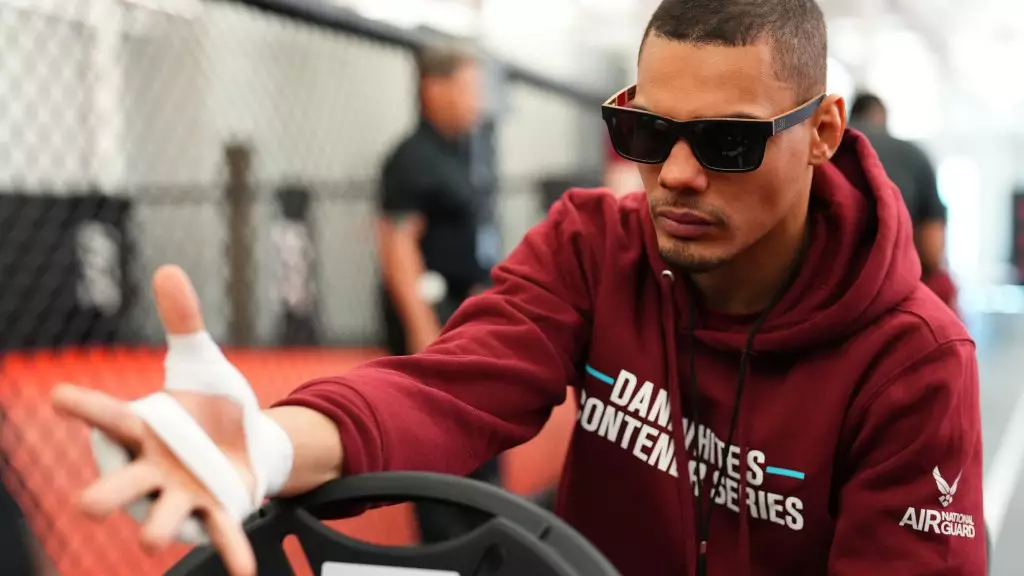In a significant move by the Nevada Athletic Commission (NAC), several fighters from the recent season of Dana White’s Contender Series (DWCS) are facing severe repercussions stemming from regulatory violations. The circumstances surrounding these disciplinary actions highlight not only the intensity of competition but also the critical importance of adhering to combat sports’ anti-doping regulations. As fans and fellow competitors grapple with the implications of these findings, the commission’s transparency and decisiveness set a strong precedent for future events.
Two notable athletes—Francesco Mazzeo and Abdellah Er-Ramy—experienced the brunt of the NAC’s crackdown following their respective fights. Both fighters tested positive for prohibited substances in their post-fight evaluations, which formed the basis of their disciplinary actions. Mazzeo, with a record of 4-1, had a urine sample collected on September 24 that showed the presence of GW1516—a substance banned year-round by the World Anti-Doping Agency (WADA). The implications of such findings are dire; the Italian fighter received a nine-month suspension, which will permit his return to competition on June 23, 2025, alongside a financial penalty amounting to $750 plus investigative fees.
Er-Ramy, who holds a record of 7-2, faced a similar predicament following a positive test for drostanolone metabolites on October 1. His nine-month suspension aligns with the timeline of his fight, effectively prohibiting him from competing until June 30, 2025. This coordinated crackdown serves as a crucial reminder of the stringent measures in place to maintain integrity in the sport.
In another instance, Quemuel Ottoni, who was scheduled to compete but withdrew mere hours prior due to anxiety, is subjected to an extended temporary suspension. The NAC’s decision to prolong the examination into Ottoni’s condition emphasizes the complex interplay between athlete mental health and competitive obligations. Despite Ottoni’s track record of 12-3, the fledgling nature of his mental health discussions continues to spark conversation regarding the pressures athletes face in elite competition.
Ottoni’s situation raises stakes in the discourse related to mental wellness in sports. The NAC’s approach to his continued suspension and the ongoing negotiations signify a growing recognition of the need for comprehensive athlete support systems, especially in a high-pressure environment like DWCS.
The ramifications from these cases extend beyond just the affected fighters; they resonate through the wider landscape of mixed martial arts. Significant penalties such as suspensions and fines maintain a standard that discourages doping and maintains fairness. Furthermore, it alerts upcoming athletes of the severe consequences of non-compliance with established regulations.
As the NAC continues its efforts to ensure the safety and integrity of the sport, the recent actions taken against these fighters underscore the ongoing battle against performance-enhancing substances and the imperative of mental health discussion in competitive sports. Whether through educational measures or regulatory enforcement, organizations are prompted to adapt to evolving challenges in the competitive arena.

